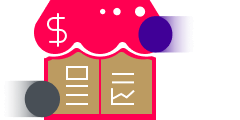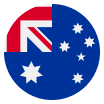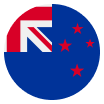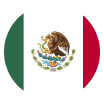Home > blog > Global Business Tips > Importing and Exporting: Common Mistakes to Avoid
Key takeaways:
- Know your import tax Malaysia, export tax Malaysia, and duty rates to avoid surprise costs
- Use the correct Malaysia custom tariff (HS code) to prevent customs delays or penalties
- Check if your goods require permits (AP, AIL, NAIL) before shipping
- Keep all documentation accurate and ready for customs
- Use a multi-currency account like WorldFirst’s World Account to reduce FX fees and simplify supplier payments.
Expanding your business beyond Malaysia is exciting – but the reality is that import and export operations come with complex rules around Malaysia’s customs tariffs, Malaysia import tax, Malaysia export tax, and documentation requirements that even experienced SMEs can struggle with.
A small oversight like misclassifying goods or misunderstanding import service tax Malaysia can lead to shipment delays, expensive duties or unexpected penalties. Whether you’re importing stock from China or exporting products to Singapore, understanding taxes in Malaysia and the proper customs processes is essential.
Below are the most common mistakes Malaysian businesses make – and how you can avoid them with better planning and payment tools like WorldFirst’s multi-currency account (anchor text suggestion: “WorldFirst World Account for importers and exporters”) that are built specifically for importers and exporters.
1. Misclassifying products under the wrong tariff codes
Every item that enters or leaves Malaysia must be assigned a correct HS (Harmonised System) code. Many SMEs choose an HS code that “seems close enough,” but the consequences can lead to:
- Overpaying or underpaying custom tax Malaysia
- Shipment holds or reclassification at customs
- Penalties for misdeclaration
- Delays when exporting or importing urgent stock
To stay compliant, always verify your HS code with your forwarding agent or check Malaysia’s official customs tariff listing.
Pro tip:
If you’re importing multiple SKUs using different currencies, use a multi-currency account to reconcile invoices accurately. A platform like WorldFirst helps keep clean records for auditing and customs declaration purposes.
2. Underestimating duties, service tax, and total landed cost
Many SMEs only calculate the product cost, forgetting the entire stack of Malaysia taxes involved. Your actual landed cost must include:
- Malaysia custom tariff (import duties depending on product type)
- Import service tax Malaysia (SST on taxable goods/services)
- Insurance, freight fees and port handling
- Customs clearance and agent fees
Electronics, luxury goods, and raw materials often fall into higher import tax Malaysia brackets.
Always request a full cost breakdown from your freight forwarder before confirming the purchase.
3. Overlooking import and export permits and licences
Malaysia has strict rules about who can import or export certain products. Many SMEs assume they can ship freely – until their goods are held at customs.
You may need:
- Automatic Import Licence (AIL)
- Non-Automatic Import Licence (NAIL)
- Export Licence
- Open General Licence (OGL)
- Approved Permits (AP) for vehicles, machinery, agricultural items, etc.
Missing permits will result in delays, potential penalties or cargo refusal.
Key steps to apply for permits
- Check if your items appear in the prohibited or controlled lists
- Customs (Prohibition of Import) Order 2023
- Customs (Prohibition of Export) Order 2023
- Prepare required documents: SSM forms, invoice, Form K1/K2, packing list, BL/AWB
- Apply through RMCD, MITI or eDagang
- Pay processing fees
- Allow enough lead time for approval
One account to manage global payments
Pay your suppliers around the world. Collect payments for free in 20+ currencies. Convert when it suits you. All in one place.
4. Not maintaining proper documentation
Poor documentation is one of the main reasons Malaysian SMEs face delays at customs. Always keep digital copies of:
- Commercial invoices
- Packing lists
- Bills of lading
- Certificates of origin
- Approval permits (AP/AIL/NAIL)
- Proof of supplier payments
Tip:
Using a platform like WorldFirst (anchor text: “WorldFirst payment records and invoicing tools”) makes it easier to retrieve and match payment proofs during customs audits.
5. Relying only on bank payments to suppliers
One of the costliest mistakes SMEs make is paying overseas suppliers using traditional bank transfers, especially when dealing with multiple currencies.
Using your day-to-day business bank account often cause:
- Double conversion fees
- Poor FX rates
- Delays in supplier confirmation
- Difficulty cross-checking transactions during customs audits
A smarter way:
Using a multi-currency account (anchor: “WorldFirst multicurrency account Malaysia”) lets you:
- Hold USD, EUR, CNH, SGD and more
- Pay suppliers in their currency to avoid double conversion
- Access better FX rates
- Automate recurring payments
- Track every payment in real time
- Integrate into Xero for fast reconciliation
For import-heavy businesses, this saves thousands annually.
6. Not staying updated on regulatory changes
Malaysia regularly updates its import and export tax structures, SST requirements and customs regulations. Changes to import tax Malaysia, service tax, and Malaysia custom tariff can affect your cost structure overnight.
To stay compliant:
- Subscribe to updates from RMCD and MITI
- Review HS codes annually
- Reconfirm duty rates before every new shipment
- Work with a reliable customs broker
7. Tips for smoother importing and exporting (SME-focused)
Here’s a simple checklist to avoid expensive mistakes:
- Verify your custom tax Malaysia before shipping
- Factor in full landed cost (freight, SST, duty)
- Use a dedicated multi-currency account for trade payments
- Automate payment records for audits
- Use trustworthy customs brokers
- Regularly review supplier terms and Incoterms
With the right setup, cross-border trade becomes predictable and profitable.
How WorldFirst supports Malaysian importers and exporters
For SMEs dealing with overseas suppliers or foreign currency invoicing, WorldFirst is one of the most efficient tools to streamline trade payments:
- Pay suppliers in 200+ countries
- Hold and convert 100+ currencies
- Access competitive, real-time FX rates
- Sync your transactions with Xero
- Use bulk payments to save time
- Get instant payment confirmations for customs clearance
Manage your business expenses with a World Account Malaysia.
Continue reading
Subscribe
The Weekly Dispatch
Get the latest news and event invites. Signup for our weekly update from the worlds of fashion, design, and tech.
Open a World Account for free
Get local currency accounts, fast payments and competitive FX – all in one place.
You might also like
Choose a product or service to find out more

Doing business with China

Global Business Tips

e-Commerce & Online Sellers

Foreign Currency Exchange

International Transactions

Doing business with China


















































